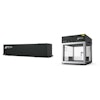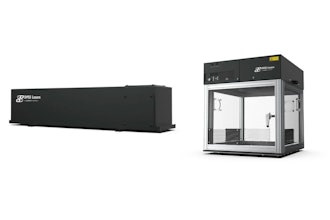BOULDER, Colo. (AP) — When millions of toys made in China were recalled for high lead content this summer and fall, Boulder toy maker Beverly Johnson took notice.
The owner of Fractiles Inc. realized that a lot of people were trolling the Internet for toys made in the United States and asking retailers for domestic items.
Fractiles' magnetic-tile toys are made in Minnesota and assembled in Denver, and Johnson decided to make that known. She slapped ''Made in the USA'' stickers on the front of her product and updated her company's Web site to make the manufacturing information and safety-test results more prominent.
''The retailers are very happy,'' she said. ''They've expressed their customers are very interested in this information.''
Other area toy companies and retailers have taken steps in recent months to highlight the safety of their toys — and they say business has grown as a result.
In Fractiles' case, Johnson estimates sales are up 30 percent, compared with this time last year. She credits the growth to more people shopping at independent retailers, businesses that she feels are more intimate and familiar with the products they carry.
The recent mass recalls made for a concerned clientele at Grandrabbit's Toy Shoppe in Boulder, said owner Lynne Milot. In the past few months, the concern has given way to awareness, adding that she is no exception.
She's increased her involvement in the American Specialty Toy Retailing Association, a group whose members discuss information about recalls, toy quality, the manufacturing process and other industry developments.
''Eighty-five percent of toys are manufactured in China, and a very high percentage of toys are safe and do comply with (America's) standards,'' she said. ''But we've learned it's very important to become informed about the source of toys. There are manufacturers who are driven by price and branding, quotas and pressure to produce more quantity more quickly, and those (manufacturers), it seems, are taking shortcuts.
''A lot of the vendors I deal with either own their own factories or supervise them, they set standards and are testing all along the way. ... So I feel a lot more comfortable.''
Erie-based WABA Fun LLC manufactures its Superstructs toys in China. To manufacture the product domestically would have priced the product out of the market and put the venture out of reach for the one-person company, said David McCloskey, WABA's founder.
McCloskey said he decided to work closely with a manufacturer in China, one that had an on-site testing lab. Another reassuring element, he said, was that Superstructs would be the only toy made at the facility. Even with the amount of confidence McCloskey had in the processes, he decided a couple of months ago to retest all of the components against U.S. and European standards, as the products are sold in both places. Everything was ''clean as a whistle,'' he said.
WABA posted its safety documentation on its Web site and has provided it to retailers as well, he said. The company's sales continue to grow.
Randy Compton helped start Boulder-based Think-ets this summer. The company sells pouches that have 15 miniature trinkets sourced from around the world, and the idea is to have kids and adults come up with stories that relate to the pieces.
The timing of Think-ets' launch made its founders very aware of safety issues. The pieces are tested at a lab in Boulder, he said.
''We're a little bit more cautious than usual,'' he said. ''We started this at the very beginning (of the mass recalls) and realized that was going to be a concern.''
Toy purchases nationally and internationally don't appear to have slowed down, said Clifford Annicelli, editor of Playthings magazine, an industry trade publication. But one concern is that toys sold at independent stores can be more expensive than those sold at mass-market stores.
Boulder mother Marie Kertzer said she typically doesn't buy too many toys for her children, but she still is more cautious this year than in years past.
''I'm going to be even more concerned about what they get from other people,'' she said.


















